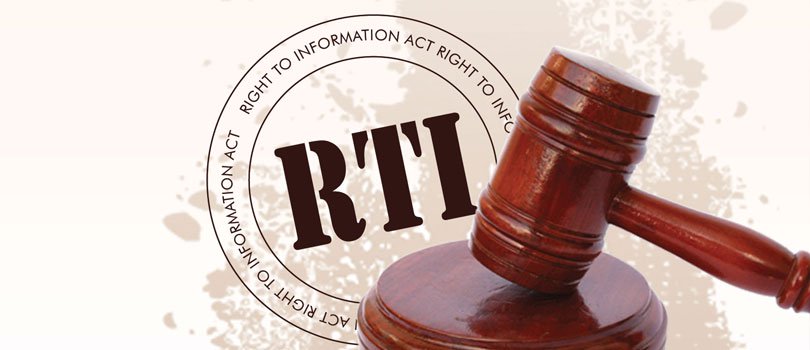
Ghana’s Right to Information (RTI) Commission has delivered what many consider as a milestone decision that signals the Commission’s commitment to ensure an effective implementation of the country’s new RTI law (RTI Act, 2019, Act 989).
In its first decision since its establishment, the Commission has ordered the country’s Minerals Commission to grant access to information requested by a journalist, Mr Evans Aziamor-Mensah.
Mr Aziamor-Mensah, a repoter with The Fourth Estate, an investigative journalism project of the Media Foundation for West Africa, had petitioned the country’s Information Commission to complain about the Minerals Commission, Ghana’s mining regulator’s, demand for $1,000 before it would release some requested information.
But in a ruling, delivered on Monday, July 19, 2021, the Right to Information Commission has quashed the Minerals Commission’s demand and has ordered that The Fourth Estate pays Gh1.90 pesewas ($0.33).
The decision by the RTI Commission is the first the body is making since it was established in October 2020, a year after the RTI law was passed in Ghana. The RTI Commission is clothed with powers, including resolving complaints through negotiation, conciliation, mediation or arbitration. It also has the power to make any determination as it considers just and equitable including issuing recommendations or penalties in matters before it.
Mr Evans Aziamor-Mensah had requested from the Mineral Commission information on companies licensed to undertake mining in Ghana between January 2013 and May 2021, and companies whose licenses have been revoked or suspended within the same period. The journalist had requested the information under the RTI law of Ghana which indicates that public institutions must only charge applicants the cost incurred in reproducing the information requested. He had requested the pieces of information are provided to him in PDF format and sent to them via email or he be invited to pick a hard copy.
However, in a response to Mr Aziamor-Mensah contained in a letter signed by the Chief Executive Officer of the Minerals Commission, Martin K. Ayisi, the organisation requested an equivalence of $1,000 citing an establishing Act of the Commission.
“Kindly be informed that in accordance with section 75 of Act 989, Section 103 of the Minerals and Mining Act, 2006 (Act 703), as well as Regulation 4 of the Minerals and Mining (Licensing) Regulations,2012 (LI 2176), the application fee payable is the Ghana Cedi equivalent of five hundred US Dollars (US $500) per request. Thus, the applicable fee payable for the above information is the Ghana Cedi equivalent of one thousand US Dollars (US$1000).”
The Fourth Estate, on June 17, petitioned the RTI Commission for a review, stating that they are dissatisfied with the decision of the Minerals Commission which attempts to charge for the preparation of the information contrary to sections 75, 80 and 85 of the RTI law. It was the first-ever petition the RTI Commission was being presented with since its establishment.
On July 19, 2021, the RTI Commission submitted a 13-page determination on the matter to The Fourth Estate and the Minerals Commission. The RTI Commission’s decision scrapped the Mineral Commission’s demand for the equivalence of $1,000 and established a charge that commensurates the cost of reproducing the information in accordance with the RTI law.
“The Commission hereby sets aside the decision of the Respondent [Mineral Commission] dated June 7, 2021, demanding payment of Ghana cedi equivalent of USD 1,000 by the Applicant [Evan Aziamor-Mensah of The Fourth Estate] for the information he requested,” the RTI Commission stated in its determination.
“The Commission directs the Chief Executive Officer of the Minerals Commission, Mr Martin K. Ayisi, to ensure the application of a charge or fee of either 1.80 Pesewas multiplied by the number of pages of information to be printed or 1.90 Pesewas, if the information in its entirety is to be emailed to the Applicant in PDF format.”
“We welcome the decision by the RTI Commission and commend the Commission for a progressive decision based on a true and proper understanding and interpretation of the law,” Sulemana Braimah, the Executive Director of the MFWA, said.
“This decision is significant for many reasons given that this is the first decision of the Commission. We had gone to court on a similar matter on fees and charges with the National Communication Authority at a time when the Commission was not yet functional. This decision sets a great precedent for the implementation of the RTI law. It affirms the fact that public institutions cannot hide behind fees and charges to deny journalists and citizens access to information, which will be defeating the ultimate aim of the law. We hope that this decision will spur everyone on to use the law as an instrument to assert their right of access to information, and to help promote transparency and accountability in the public.”
The RTI Commission has ordered the Minerals Commission to provide The Fourth Estate with the information requested within 14 days from the date of the determination.
